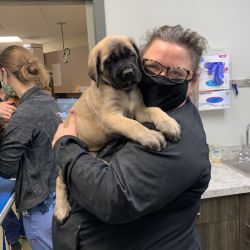Origins and Temperament
The Japanese Chin is a breed with a noble lineage, originally kept by Japanese aristocracy as a lap dog. This breed exudes a regal and charming presence that belies its playful and loving nature. Known for their intelligence and cat-like temperament, Japanese Chins may often exhibit reserved behavior in unfamiliar environments. Due to their sensitivity to change, transporting a Japanese Chin requires an understanding of their need for a serene and stable atmosphere.
Size and Physical Needs
Typically weighing between 4 to 15 pounds, the small stature of the Japanese Chin requires minimal space for transportation. However, despite their small size, they do have moderate exercise needs that should be met with gentle play rather than strenuous activity. Special accommodations, such as soft bedding and a secure carrier, must be provided during transport to cater to their physical delicateness.
Common Health Considerations
The breed is prone to certain health issues such as heart murmurs, respiratory problems, and eye conditions. It is essential to carry updated health documentation, including a certificate of veterinary inspection, during travel. Taking preventative measures, like ensuring a stress-free and well-ventilated environment, can mitigate potential health risks en route.
















